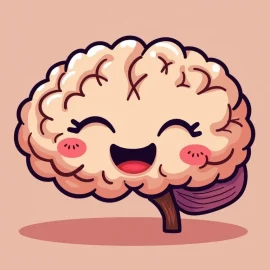

This article is an excerpt from the Shortform book guide to "The School of Life" by The School of Life. Shortform has the world's best summaries and analyses of books you should be reading.
Like this article? Sign up for a free trial here.
Why is society generally low in emotional intelligence? What are the consequences of our lack of emotional intelligence?
According to The School of Life authors, there’s an overall lack of emotional intelligence in today’s society. They argue that we fail to teach children emotional intelligence in schools despite how much importance we place on gaining a formal education.
Read on to learn about the causes and consequences of our lack of emotional intelligence, according to the authors.
We Lack Emotional Intelligence
In The School of Life, the authors write that as a society, we place huge stock in formal education. But we don’t educate our children or ourselves about how to deal with disappointment, anger, loss, and other difficult emotions. In other words, we don’t teach emotional intelligence. Instead, we believe people should simply follow their intuition when navigating emotional situations and that doing this will lead to the best outcomes. Should we start teaching emotional intelligence to children and what are the consequences of our lack of emotional intelligence as a society? In this article, we’ll describe how the authors respond to each of these questions.
Why Teaching Emotional Intelligence Is Important
To give an example of our lack of emotional intelligence at large, the authors describe how, instead of teaching adolescents ways to navigate conflicts with their friends, we allow them to do what seems intuitively best to them—which might be yelling or talking about their friend behind their back.
(Shortform note: In Emotional Intelligence, Daniel Goleman proposes some ways in which we could teach emotional intelligence to children. Teachers could incorporate emotional intelligence lessons into existing subjects by simply bringing up discussions of emotionally intelligent behavior. For instance, in a history class, a teacher could talk about why a historical figure acted a certain way and have students propose better ways of handling a situation. Goleman differs from the authors on the idea that we believe people should follow their instincts when it comes to emotional decisions, however: Goleman seems to indicate that parents would prefer to teach emotional intelligence, but the pressures of everyday life give them no time to do so.)
The authors define emotional intelligence as your ability to understand how your and others’ emotions work. To determine if someone has a lack of emotional intelligence, it helps to ask the following questions: Can you think about and communicate your own feelings, understand the feelings of others, and practice empathy toward them?
Some examples of emotional intelligence include being able to label your disappointment in your spouse and communicate it to them (rather than giving them the cold shoulder), or apologizing to your neighbor for yelling at them when you recognize you were only angry because of a work frustration (rather than convincing yourself your neighbor did something wrong).
(Shortform note: The authors of this book write about emotional intelligence from a philosophical and spiritual perspective, but others have taken a more scientific approach to emotional intelligence. In Emotional Intelligence, Daniel Goleman defines emotional intelligence more comprehensively as the ability to know and manage your emotions, motivate yourself, understand the emotions of others, and have healthy relationships. He further elaborates on what gives rise to emotions in the first place—the need to cope with circumstances the logical part of your brain can’t process alone. In contrast, for the authors of The School of Life, emotions are a less scientific phenomenon.)
The Consequences of a Lack of Emotional Intelligence
Our lack of emotional intelligence means that we repeatedly make the same bad decisions in our personal lives, relationships, and work lives, write the authors. Because we don’t understand ourselves, our emotional needs, or the emotions of others, we come up with poor solutions to our emotional problems. In fact, often, the solutions we devise to our problems only exacerbate them, leaving us miserable without knowing why. Our general happiness, friendships, relationships, and work eventually suffer because of this lack of self-understanding.
For example, when we have a lack of emotional intelligence, we might repeatedly enter romantic relationships that bore us because we don’t understand our emotional needs. This leaves us unfulfilled and restless. Or we might yell at our kids for being shy, not understanding that doing so only makes them more withdrawn. This may permanently damage our relationships with our kids. Or we might behave unethically at work because we mistakenly believe a business failure means we’re a personal failure. Such a lapse may result in termination.
(Shortform note: There’s a common misconception that women are more emotionally intelligent than men and thus less likely to make poor decisions based on misunderstood emotions. However, it appears that men and women are equally emotionally intelligent, just in different ways. Women are more intelligent when it comes to empathy, social responsibility, and relationships. Men are better at being assertive, tolerating stress, and viewing themselves positively. Perhaps, then, women and men tend to make poor choices in the areas of life where they have a lack of emotional intelligence—men might repeatedly fail in relationships due to a lack of empathy, and women might be overlooked for promotions due to a lack of assertiveness.)
Not only do we decline to teach emotional intelligence in the first place, but we also fail to see that humans must expand their emotional intelligence as they age and enter new phases of life. We should thus not only teach emotional intelligence to kids, but also to adults at all stages of life.
| How Do You Teach Emotional Intelligence to Adults? The authors propose continuing to teach emotional intelligence at every stage of adulthood but don’t suggest what this education might look like. Perhaps the best place to deliver an emotional intelligence education is in the workplace, a setting where leaders can act as teachers and employees can practice their skills on other adults. Experts recommend that to teach emotional intelligence, leaders should first ask the employee to define their life goals. Then, the leader should help the employee identify what current behaviors and habits stand in the way of achieving these goals. For example, if an employee wants to one day become CEO, their current habit of shirking responsibility is an obstacle to that goal. Finally, the employee will have to put in the hard work of changing those behaviors. By repeatedly engaging in this process, leaders can help employees increase their emotional intelligence throughout their tenure. |

———End of Preview———
Like what you just read? Read the rest of the world's best book summary and analysis of The School of Life's "The School of Life" at Shortform.
Here's what you'll find in our full The School of Life summary:
- Why most people lack emotional intelligence and make poor choices
- How emotional intelligence can make you feel more fulfilled in life
- How to gain emotional intelligence about yourself, others, relationships, and work






